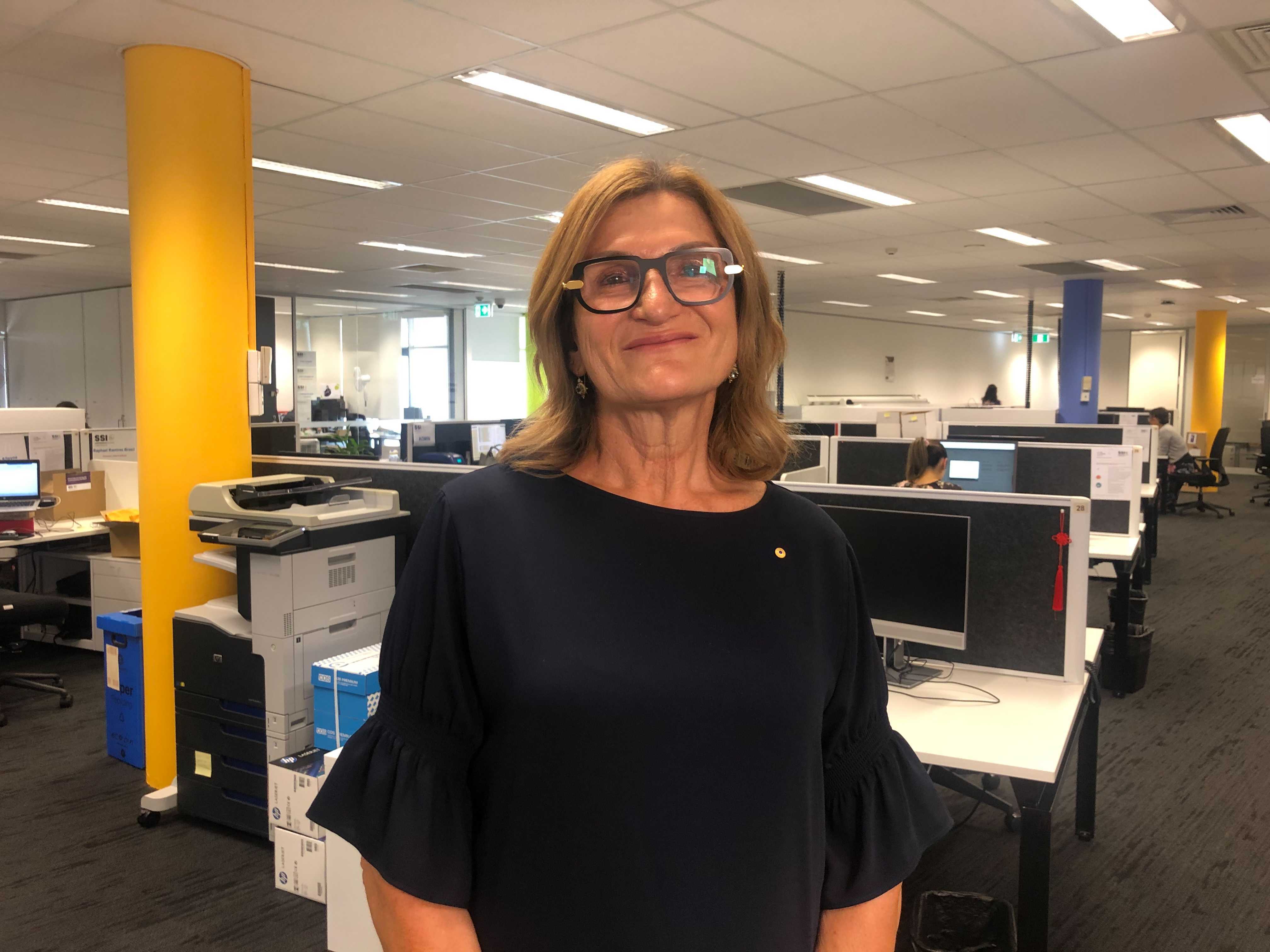Chantel and Ayla Moussad came to Australia three years ago to escape the Syrian civil war.
For Chantel, things were hard. The single mother gave up her job as an executive at a big bank and had to start all over again in a new country where her qualifications weren’t recognised.
“You are far from your culture and family. You are alone,” she told SBS News.
“During this time I was working [as] anything: a cleaner, a cook, in convenience stores, in restaurants.”
After a year, Chantel started as an intern at the Commonwealth Bank – and worked her way up the ladder from there.
“In a year and four months, I moved into three roles: intern, analyst and then manager.”
Now living in Rose Bay in Sydney’s east, she and seven-year-old Ayla are settled. Ayla is enjoying her new school, having not spoken a word of English when she arrived in Australia.
“It was difficult because I didn’t know the actions or words. I had to try and understand it,” she said.
“My new school is good, but you have to do homework.”
The Moussads’ experiences are common, according to a survey of 133 refugee families from Syria, Iraq and Afghanistan who settled in different locations across NSW.
The research – by the University of Technology Sydney, the University of Sydney, Western Sydney University and not-for-profit Settlement Services International – found the refugees felt safe in their new home, accepted by their community, thankful to Australia for taking them in, and are keen to become Australian citizens.
Ninety per cent of respondents said people in their new suburbs were friendly, 66 per cent found it easy to become friends with neighbours and 80 per cent of young respondents were happy with their new school.
Overall, 74 per cent of respondents said they are enjoying life in Australia.
“It’s great to have research that underscores they come and feel they’ve been welcomed,” SSI CEO Violet Roumeliotis said.
“Australia has a lot to be proud of in regards to this.”
But breaking into the professional job market remains a source of significant frustration.
Around 88 per cent of the adult refugees from the cohort had not yet entered the labour market at the time they were surveyed because they were engaged in English language training or caring responsibilities.
Most of the adult Hazara refugees from Afghanistan in the cohort had been denied education and employment opportunities by the Taliban and arrived with very little education.
Of the Iraqi and Syrian refugees, 36 per cent held a tertiary education degree, but like Chantel, many found getting recognition for their existing qualifications difficult.
“What we found is a professional pharmacist from Syria or Iraq will be getting a job in that industry – not as a pharmacist, but as an assistant or technician, jobs below their capacity,” said UTS professor Jock Collins, one of the report’s co-authors.
The new research is based on data collected in 2018 and is part of a broader three-year project encompassing 233 refugee families who settled in NSW, Queensland, and Victoria.
It doesn’t take into account the effect of the coronavirus pandemic this year – which for many refugees was an isolating experience.
Ms Roumeliotis said some refugees have struggled to work or learn from home this year.
“We assume that everyone has access to an iPad, laptop, internet,” she said.
“But that’s not the case for many, so they [have been] quite isolated.”
Australia’s humanitarian intake has been cut by 5,000 places to 13,750 over the next four years, saving an estimated $1 billion.
Acting Immigration Minister Alan Tudge said the move, revealed in October’s federal budget, “reflects the global impacts of the COVID-19 pandemic” and Australia was the third most generous humanitarian resettlement country in the world in absolute numbers.
“The government will continue to focus on settlement and integration support for humanitarian entrants. This will include prioritising supporting people in work and improving English language skills,” he said following the budget announcement.
But Prof Collins said the new research showed there were many positive settlement outcomes for those who were surveyed, and suggested the cut to Australia’s humanitarian intake was “short-sighted and ideological”.
“Settlement outcomes for these newly arrived refugees from Syria, Iraq and Afghanistan were very strong and very positive, suggesting Australia can take in more refugees and be very confident about the social and economic outcomes,” he said.







